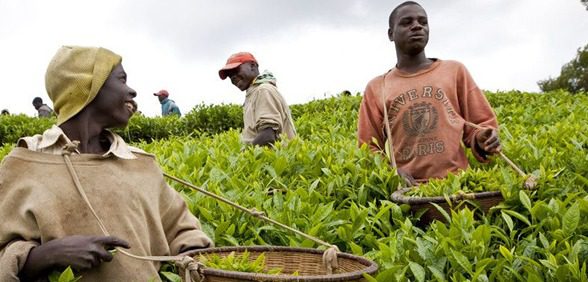Global Issues
Empowering Women Farmers Through Financial Inclusion -By Abachi Ungbo

Madam Lami, a mother of five beautiful children depended on agriculture as her means of livelihood long before the unfortunate passing of her husband; she waxes so lyrical of how it has been a reliable bulwark against poverty and hunger notwithstanding the drudgery and the concomitant challenges.
However, she has found her greatest challenge in the cost of inputs which has been making enormous inroads into her income. The requisite financial support which would help in mitigating the effect has continue to elude her while recourse to informal money lenders has gravely added to her sorrow. Regrettably, she is in the category of a legion of women in agriculture without a bank account let alone being beneficiary of any form of financial services.
Make no mistake, the activities of women in agriculture are well documented. They’re conspicuous in the entire scope of agriculture as well as in the value chain. Many reports have stated that women constitute almost half of the labour force in the sector. Despite their acknowledged contributions, they still don’t get deserved help primarily due to failure in factoring their peculiarities in the scheme of things.
Findings of not a few studies have stated that lower productivity rates are commonplace amongst women farmers. This is not implying that women are less efficient farmers; it only reveals that they are held back by the restrictive force of unequal access to resources notably finance. On this score, many go to extreme extents to enjoy financial services that are consequential to facilitating farming operations and development of their livelihoods. Instructively, putting particularly finance within the easy reach of women is fundamental in closing the gender gap in agricultural productivity.
It is against this backdrop, that the import of financial inclusion in agriculture for women needs to be underlined. Financial inclusion simply “encompasses the range, quality and availability of financial services to the underserved and the financial excluded.” Interestingly, it is a significant tool for accomplishing the Sustainable Development Goals (SDGs), primarily goal 5- which is on achieving gender equality and facilitating the empowerment of women. It is clear that “women and girls still earn less, learn less, own less and wield much less economic power than their husbands and brothers.”
Without a doubt, gender financial inclusion in agriculture ensures exposure to finance which will bridge the inequality gap and serve as weapon against poverty owing to the fact that increased productivity fetches healthy income for the farmer.
In unlocking needed finance, financial inclusion will foster a new stream of income for the women through diversification of their livelihood; provide them with capacity in value addition activities and acquisition of appropriate storage facilities which will delay the quick sale of produce until such a time when higher prices are assured. Like Madam Lami, many women are known to engage in the processing of shea butter, locust beans etc which is proving quite lucrative which can easily be supported through available finance.
More so, it will serve as buffer against shock and for mitigation of risk. And, shield women from the predatory activities of shylock as a result of the available capacity that will help in acquiring needed inputs and labours since it is well known that proceeds from previous harvests are exhausted before the next. The adoption of new technologies and practices and saving culture will be encouraged. In the final analysis, financial inclusion is a boon for children, nutrition and the community in general.
Financial inclusion attempts in addressing gender gap are way off from recording desired successes not least in agriculture. To achieve the results underlying causes for women exclusion needs to be located and address.
At any rate, mainstreaming gender specific goals is significant as strategies are developed in bridging the gender gap in the financial inclusion drive and the tailor-made services reflecting the realities of women should be made accessible and affordable as incentives that will encourage women to save and borrow money. The financial literacy program momentum needs to be raised. Importantly, demand for land should be excluded from the conditions for loan for women.
It bears repeating that focussing on the expansion of women access to affordable finance in agriculture is fundamental to economic development in lifting themselves, families and their communities out of the poverty trap and in achieving the Sustainable Development Goals (SDGs) where financial inclusion was alluded to, in about seven of the goals.
ABACHI UNGBO
abachi007@yahoo.com









